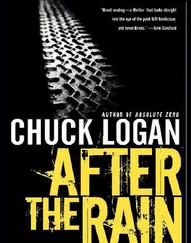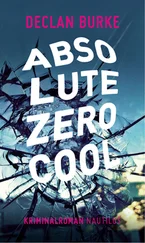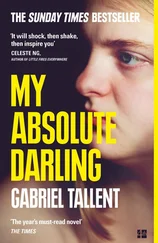Chuck Logan - Absolute Zero
Здесь есть возможность читать онлайн «Chuck Logan - Absolute Zero» весь текст электронной книги совершенно бесплатно (целиком полную версию без сокращений). В некоторых случаях можно слушать аудио, скачать через торрент в формате fb2 и присутствует краткое содержание. Жанр: Криминальный детектив, на английском языке. Описание произведения, (предисловие) а так же отзывы посетителей доступны на портале библиотеки ЛибКат.
- Название:Absolute Zero
- Автор:
- Жанр:
- Год:неизвестен
- ISBN:нет данных
- Рейтинг книги:3 / 5. Голосов: 1
-
Избранное:Добавить в избранное
- Отзывы:
-
Ваша оценка:
- 60
- 1
- 2
- 3
- 4
- 5
Absolute Zero: краткое содержание, описание и аннотация
Предлагаем к чтению аннотацию, описание, краткое содержание или предисловие (зависит от того, что написал сам автор книги «Absolute Zero»). Если вы не нашли необходимую информацию о книге — напишите в комментариях, мы постараемся отыскать её.
Absolute Zero — читать онлайн бесплатно полную книгу (весь текст) целиком
Ниже представлен текст книги, разбитый по страницам. Система сохранения места последней прочитанной страницы, позволяет с удобством читать онлайн бесплатно книгу «Absolute Zero», без необходимости каждый раз заново искать на чём Вы остановились. Поставьте закладку, и сможете в любой момент перейти на страницу, на которой закончили чтение.
Интервал:
Закладка:
Allen veered and accelerated past a queue of cars lined up for a left turn. Too many people were moving in. On his right, bulldozers scuttled like maggots on the remains of the forest and the fields. Lowball Mexican carpenter crews banged away, roughing in more new homes.
He disdained traffic. They should have a two-tiered road system, he mused-one for busy professionals and another for the patients to play bumper cars.
Hank Sommer’s house sat back from the road on a bluff over the St. Croix River behind a screen of two-hundred-year-old white pines. From the road it looked like a small lake cabin, but as Allen wound down the serpentine driveway between the thick tree trunks the house revealed itself stage by stage in levels that cascaded down the bluff.
Hidden, subtle; quirks that Hank appreciated and Allen did not.
The weather-streaked cedar-plank walls and the rough shake roof were silver-dark, as were the thickets of frost-tortured ferns and hosta that clogged the walks of liver-colored cobbles. Canadian hemlock and Japanese yew grew in the shade like prickly green shadows. That was Hank for you, drawn to shadow as the better part of light.
Allen would cut it all down. Let in some light. Put in a tennis court.
Earl Garf’s boxy green Chevy van sat like a guard dog in the turnaround in front of the garage. Allen parked behind the van, got out, and noted a bubbling of rust along the driver’s side of the van’s rocker panels. He was expected, so Earl would stay in the basement, out of sight until summoned to drive Jolene into town. But he’d make enough noise to intrude, to let Allen know he wasn’t far away. That had been the daily drill every time he’d checked in on Hank since they’d foolishly brought him home.
Allen mounted the simple brick porch and pressed the bell.
Jolene opened the door and Allen sniffed. The secondhand smoke of Hank’s Camel straights still lingered inside the house.
Seeing her, he wanted to take her all at once, like medicine. Like tonic. But he controlled himself and disguised his disappointment at the way she had renounced makeup and shorn her long hair. He was used to the suffering look that bleached the faces of families of terminal patients. But he didn’t like seeing it on her.
This morning, fresh from the shower, she wore gray sweatpants and a blue, armless T-shirt. It was very warm in the house so she was barefooted.
“Hello, Allen,” she said, very friendly.
“How’re you doing, Jo.” His eyes flew to the firm white magnets of her bare upper arms. Veered away.
She merely nodded, letting the weary smile play across her lips as she took his coat. He kicked off his shoes as she hung his coat in the hall closet, and as she turned back to him he was minutely aware of the entire volume of her body, the air it displaced and the smooth way it moved. She was all surface, image.
It occurred to him that he could only visualize the interior of anesthetized draped bodies on an operating table. He could not see past the surface of moving bodies. This insight bothered him slightly.
“I really appreciate this,” she said.
“No trouble at all,” Allen said.
As usual there was no mention of Earl down in the basement.
She led him through the living room. He approved of the way the house was a little cleaner every time he visited. More of Hank’s clutter had been pruned and removed to the basement and the garage.
Seeing the light filter into the house through the slats of heavy wooden Venetian blinds, and the black Bakelite plastic rotary phone on the living room desk, Allen understood that Sommer had been born twenty years too late. On more than one occasion, he had heard Hank quip that he would have liked to jump into Normandy with the Airborne and kill Germans, but he was only two years old at the time. Spiritually, Hank belonged in the tar pits with the generation of blue-collar smokers who’d fought in World War II.
They went through the kitchen and down the circular stairway. “The canoe guide called,” Jolene said. “He’s bringing down Hank’s truck this afternoon.”
“Broker,” Allen nodded. “He’s a good guy. Doesn’t say much.”
“I’d completely forgotten about leaving it up there.”
“It’s all right.”
“No, it’s not, it’s a detail. Details are important.”
“Yes, they are. For want of a nail,” Allen recited.
She stopped and cocked her head. Allen explained, loving the bare slate of her face, “It’s an old saying, from a poem. ‘For want of a nail the shoe was lost. For want of a shoe the horse was lost. For want of a horse the rider was lost. For want of a rider the battle was lost. For want of the battle the kingdom was lost.’ ”
She nodded, filed it away, and they resumed moving through the master bedroom, past the open door of the bathroom where the mirror was still beaded with the moisture of her shower. The king-size sleigh bed looked like it hadn’t been slept in for a week.
Then they turned into the spacious studio where Hank Sommer’s loose body was arranged on a cranked-up hospital bed. Allen startled at a flurry of gray movement on Hank’s lap.
“Just the cat. She likes to curl on his stomach,” Jolene said.
Allen watched the gray, short-haired animal dart from the room. He disliked cats and he hated surprises, so he especially hated this cat’s name: Ambush.
Hank wore a baggy blue shift and as they entered the room his eyes lurched back and forth. His hands clenched up, strangled invisible tormentors, and fell down.
Allen smiled tightly at the narrow single bed at the foot of the hospital bed where Jolene kept vigil. She had never been this devoted to Hank when he was whole. Now she kept to the care schedule like a martyr, and he had a real worry she’d hurt her back, moving him through the turning and ROM exercises.
It was more denial. Like the radio and TV and the vase of fresh flowers that sat next to the bed and that she changed every other day. Some days she tuned the boom box to his favorite oldies station. On other days it was C-SPAN or the History Channel.
It annoyed Allen the way she clung to hope.
A diagram of instructions for turning and feeding was taped to the wall. She’d set up a regular baby-changing station on a cart next to the bed. Diapers, baby wipes, oil, talc, Desitin for rash. The most ironic of her makeshift innovations was the baby monitor with speakers positioned throughout the house.
Her hand drifted up and touched his forearm, and Allen felt a jolt of excitement. It curdled to pique when she said, “He always does that when I come in, like he’s looking at me.”
“Random eye movement; he blinks, he drools, he grunts. It doesn’t mean anything,” Allen said stiffly.
“Well,” Jolene said, “sometimes I come into the room and his eyes pick me up.” She approached Hank’s bed, stopped at a distance of one foot, and stared into him like he was a department store window.
Allen’s face flushed slightly. He folded his arms tightly across his chest and kept his voice low and under taut control. He gave it to her straight and clinical, and then some.
“We had the best man from HCMC neurology evaluate him. He found ‘no visual pursuit.’ That means his eyes cannot fix and follow an object. Diagnosis: persistent vegetative state. We can run CAT scans, MRI’s, EEG’s; they will probably show brain shrinkage.”
Jolene pointed. “Look, he did it again.”
Allen went on, a little heated. “The eye movement is a primitive auditory response, just electricity firing down in his brain stem. It’s not human, it’s reptile. Remember what the neurologist told you-the diving-seal syndrome.” Allen paused, visualizing the image of Hank plunging into blacker and blacker arctic depths. “The deeper the seal goes, the more nonessential physical systems it shuts down.”
Читать дальшеИнтервал:
Закладка:
Похожие книги на «Absolute Zero»
Представляем Вашему вниманию похожие книги на «Absolute Zero» списком для выбора. Мы отобрали схожую по названию и смыслу литературу в надежде предоставить читателям больше вариантов отыскать новые, интересные, ещё непрочитанные произведения.
Обсуждение, отзывы о книге «Absolute Zero» и просто собственные мнения читателей. Оставьте ваши комментарии, напишите, что Вы думаете о произведении, его смысле или главных героях. Укажите что конкретно понравилось, а что нет, и почему Вы так считаете.











